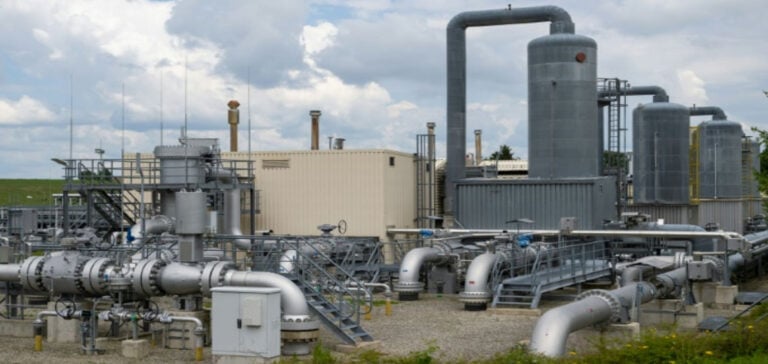Germany, with the largest gas storage capacity in the EU, has now filled its reserves to over 100%, according to data from industry group Gas Infrastructure Europe on November 6. This achievement makes Germany the fourth EU member state to exceed its technical gas storage capacity.
Filling targets exceeded ahead of schedule
The aim of this operation was to improve security of supply in response to Russian gas supply restrictions. GIE data show that German storage sites were filled to 100.03% of capacity on November 4.
Klaus Müller, chairman of the regulator, welcomed this achievement, declaring that “gas reserves are now 100% full”, emphasizing that this better prepares Germany for winter. He also advised using gas sparingly to save money.
Winter gas supply security
Other EU member states have also exceeded 100% filling of their gas storage facilities, including Portugal (107.3%), Romania (103%) and Spain (100.4%). It should be noted that the filling level does not always correspond to the physical capacity of the site, as some installations can store more gas.
Germany had set progressive filling targets for its plants, reaching 75% of capacity by September, 85% by October and 95% by November, all of which were achieved ahead of schedule.
However, despite full reserves, the German regulator said it was still “too early” to give the green light to winter gas supply security. He stressed that the situation was much better than the previous year, but that factors such as a very cold winter could increase gas consumption.
In addition, Russian gas deliveries to Europe by pipeline are currently limited, prompting Germany to advocate gas savings of at least 20%, exceeding the EU target of a 15% reduction. The message is clear: saving gas helps ease the financial burden on consumers.






















